A CENTENNIAL PUBLICATION OF THE
UNIVERSITY OF CHICAGO PRESS

A HISTORY OF THE HUMAN COMMUNITY
WITH A RETROSPECTIVE ESSAY
by WILLIAM H. McNEILL
DRAWINGS BY BLA PETHE
THE  UNIVERSITY OF CHICAGO PRESS
UNIVERSITY OF CHICAGO PRESS
Chicago London
London
I seek to understand, and if I can
To justify the ways of man to man.
THIS BOOK IS DEDICATED
TO
THE COMMUNITY OF SCHOLARS CONSTITUTING
THE UNIVERSITY OF CHICAGO
1933-1963
THE UNIVERSITY OF CHICAGO PRESS, CHICAGO 60637
The University of Chicago Press, Ltd., London
1963,1991 by The University of Chicago. All rights reserved
Published 1963.
Printed in the United States of America
10 09 08 07 06 05 04 5 6 7 8
Library of Congress Cataloging-in-Publication Data
McNeill, William Hardy, 1917-
The rise of the West : a history of the human community ; with a retrospective essay / by William H. McNeill ; drawing by Bla Pethe.
p. cm.
Includes bibliographical references and index.
ISBN0-226-56141-0
1. CivilizationHistory. 2. Civilization, Western. I. Title.
CB69.M34 1990
909dc20
91-24224
CIP
"The Rise of the West after Twenty-Five Years" first appeared in the Journal of World History 1 (1990): 1-21; 1990 by University of Hawaii Press.
 The paper used in this publication meets the minimum
The paper used in this publication meets the minimum
requirements of the American National Standard for
Information SciencesPermanence of Paper for Printed
Library Materials, ANSI Z39.48-1992.
Contents
THE ERA OF MIDDLE EASTERN
DOMINANCE TO 500 B.C.
B. THE CIVILIZATIONS OF THE NILE AND INDUS VALLEYS
TO 17OO B.C.
C. THE TRANSPLANTATION OF CIVILIZATION TO
RAIN-WATERED LANDS
IV. THE RISE OF A COSMOPOLITAN CIVILIZATION IN THE
MIDDLE EAST, 1700-500 B.C.
EURASIAN CULTURAL BALANCE
500 B.C.-1500 A.D.
B. EXPANSION AND DEVELOPMENT OF THE NON-HELLENIC
CIVILIZATIONS OF EURASIA, 500-100 B.C.
Modification of Civilized Military and Political
Institutions in Western Eurasia
Plantations and the Conscious Transformation
of Tropical and Subtropical Economies
Illustrations
MAPS
CHARTS
PLATES
The Rise of the West
after Twenty-five Years
Historians approach their subject from the moving platform of their own times, with the result that the past changes shape continually. Anyone who lives to re-read his own work long afterward must therefore expect to recognize signs and hallmarks of the inevitable displacement that time brings to historical understanding. This truism was brought home to me by a seminar devoted to my magnum opus, The Rise of the West, at Williams College, where I was visiting professor in 1988. It was the first time I had read the book in twenty-five years, and the experience of revisiting an old friendand incubus was both humbling and elevating.
The book was a sudden, surprising success when it came out in 1963. Lavish praise from Hugh Trevor-Roper in the New York Times Book Review and the onset of the Christmas season briefly lifted it to the best-seller list; the book has remained in print ever since. A cheap paperback ($1.25 for 828 pages!) sold out of an initial printing within a year, and cumulative sales of the full-sized book amount by now to more than 75,000.
In retrospect it seems obvious that The Rise of the West should be seen as an expression of the postwar imperial mood in the United States. Its scope and conception is a form of intellectual imperialism, for it takes on the world as a whole, and it tries to understand global history on the basis of the concept of cultural diffusion developed among American anthropologists in the 1930's. In particular, The Rise of the West is built on the notion that the principal factor promoting historically significant social change is contact with strangers possessing new and unfamiliar skills. A corollary of this proposition is that centers of high skill (i.e., civilizations) tend to upset their neighbors by exposing them to attractive novelties. Less-skilled peoples round about are then impelled to try to make those novelties their own so as to attain for themselves the wealth, power, truth, and beauty that civilized skills confer on their possessors. Yet such efforts provoke a painful ambivalence between the drive to imitate and an equally fervent desire to preserve the customs and institutions that distinguish the would-be borrowers from the corruptions and injustices that also inhere in civilized life.
A second corollary of the proposition that contact with strangers is the major motor of social change is that contacts among contemporaneous civilizations ought to be of key concern to a world historian, for such contacts can be expected to alter the assortment and expression of high skills each civilization possesses, and thereby to affect the local skill-diffusion pattern described above. Moreover, whenever one civilization, through some apparent superiority of its skills, becomes able to influence everyone with whom it comes in contact, then the grain of world history begins to run in a single direction, so to speak; and so by observing the reception of new skills and ideas in distant parts a historian can give shape and meaning to the confusion of detail that otherwise makes world historyquite literallyinconceivable.
In the years 1954 to 1963, when the book was being written, the United States was, of course, passing through the apex of its postwar capacity to influence others thanks to its superior skills and wealth. It follows that my vision of the world's past can be dismissed as being no more than a rationalization of American hegemony, retrojecting the situation of post-World War II decades upon the whole of the world's past by claiming that analogous patterns of cultural dominance and diffusion had existed always. (Of course the obvious rebuttal is to point out that the post-World War II era was part and parcel of world history, and conformed to precedent in a way Americans were not aware of at the time.)
No historian can deny that his views of the past reflect experiences of his own time, interacting with a tradition of learning that, in turn, bears all the marks of the times and places in which it grew. But I can at least say this: when I was writing the book I was entirely unaware of the way in which my method of making sense of world history conformed to the temporary world experience of the United States. In retrospect, it seems the warmth with which the book was received in the early 1960's did arise in large part from this congruence. But if so neither I nor the reviewers noticed it at the time. The hand-in-glove fit between my review of the whole of human history and the temporary world role played by the United States therefore operated, if it operated at all, entirely at a subconscious level for all concerned.

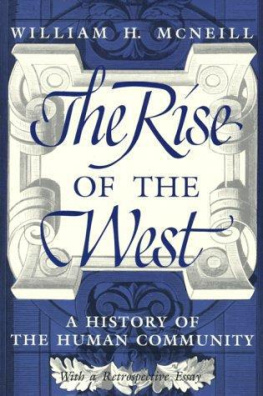
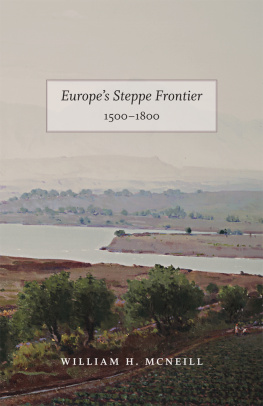
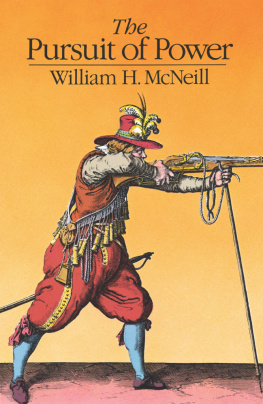
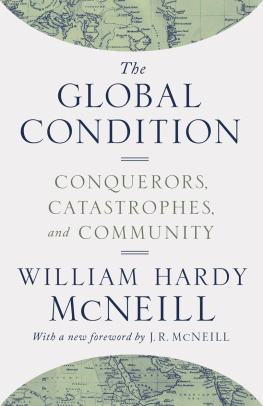

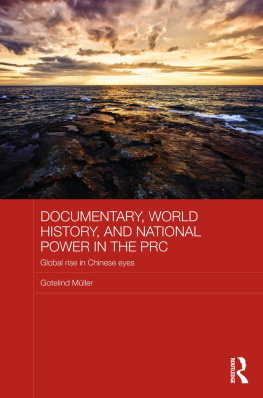
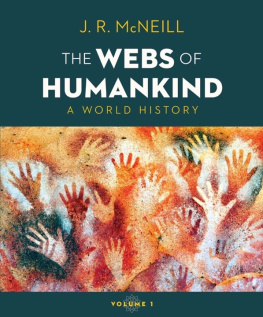
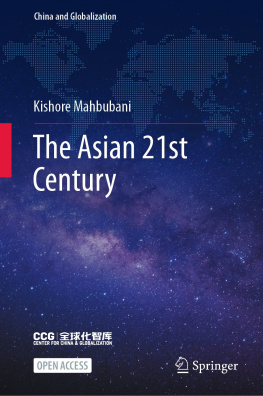

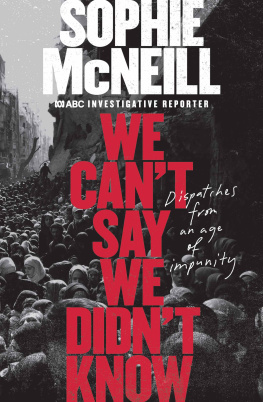

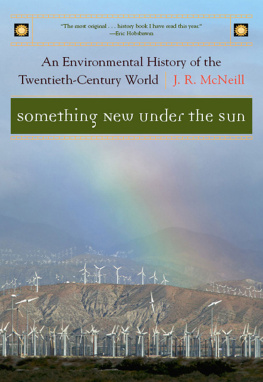
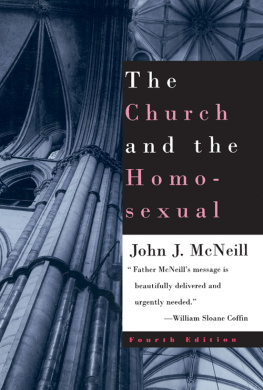




 UNIVERSITY OF CHICAGO PRESS
UNIVERSITY OF CHICAGO PRESS London
London The paper used in this publication meets the minimum
The paper used in this publication meets the minimum